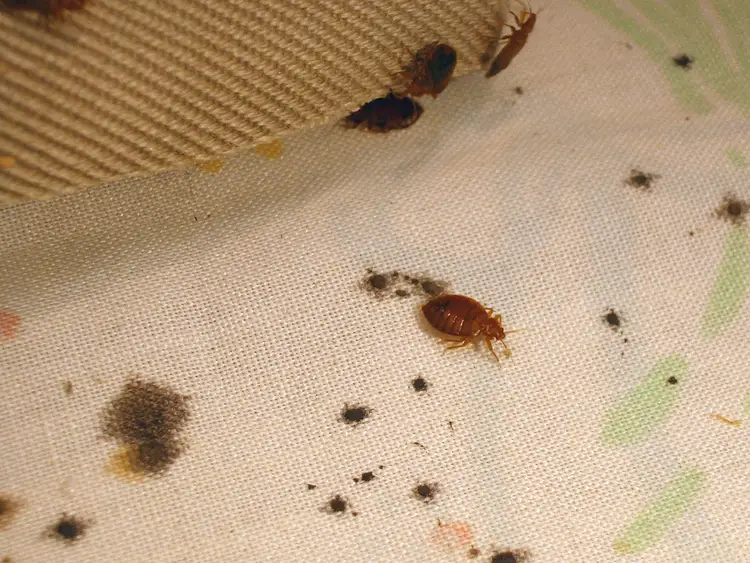Detecting Bed Bugs: Signs and Symptoms to Identify an Infestation
Bed bugs, those tiny nocturnal pests that feed on human blood, can turn your peaceful nights into a nightmare. Early detection is key to preventing a full-blown infestation. In this guide, we’ll equip you with the knowledge to identify signs and symptoms of bed bugs. Let’s ensure you sleep tight without letting the bed bugs bite.
Understanding Bed Bugs
Before we dive into the signs and symptoms, let’s understand our adversary – the bed bug. These small, reddish-brown insects have made a comeback in recent years. Understanding their behavior and habits is crucial for effective detection.
Common Symptoms of Bed Bug Bites
One of the most common indicators of a bed bug infestation is the telltale bites. These bites can manifest differently in each individual, often causing itching, redness, and swelling. Let’s delve into the specifics of these bites.
Visual Signs of Bed Bugs
Sometimes, seeing is believing. Bed bugs leave behind visual clues that can help confirm an infestation. Let’s explore how these pests look and where they typically hide in your home.
Bed Bug Excrement and Stains
Bed bugs are notorious for leaving behind more than just bites. Their excrement and stains can offer crucial evidence of an infestation. Discover what to look for and where to find these distinct marks in your living space.
Identifying Bed Bug Eggs
Bed bugs reproduce rapidly, and their eggs are a vital part of the infestation. Learn to spot these tiny, pearl-white eggs, where they are typically laid, and why removing them is essential in controlling bed bugs.

Unusual Signs of Bed Bugs
Beyond the bites and visual evidence, bed bugs may leave behind other, less common signs. Explore these unique indicators, such as a musty odor or discarded exoskeletons, which can help confirm an infestation.
Conducting a Bed Bug Inspection
Taking proactive measures to detect bed bugs is crucial. In this step-by-step guide, we’ll walk you through how to conduct a thorough inspection of your home. Equip yourself with the tools and knowledge to catch these pests early.
When to Call a Professional
While DIY solutions can work in some cases, there are instances where it’s wiser to call in the experts. We’ll discuss scenarios in which professional pest control services are necessary and offer guidance on selecting a reputable provider.
Preventing Bed Bug Infestations
Prevention is always better than cure. Discover proactive measures you can take to reduce the risk of bed bug infestations, whether you’re at home or traveling. Stay vigilant and keep these pests at bay.
(FAQs) related to bed bug infestations
1. What are the common signs of a bed bug infestation?
Answer: Common signs include bites, tiny reddish-brown bugs in bedding, excrement stains, and a sweet, musty odor.
2. Are bed bug bites dangerous to my health?
Answer: Bed bug bites are generally not dangerous but can cause itching and discomfort. In rare cases, they may lead to secondary infections.
3. Can I see bed bugs without a magnifying glass?
Answer: Yes, bed bugs are visible to the naked eye, especially during the adult stage, though they are small (about the size of an apple seed).
4. Do bed bugs only infest beds?
Answer: No, bed bugs can infest various places, including furniture, luggage, clothing, and even electrical outlets.
5. How can I prevent bringing bed bugs home after traveling?
Answer: Inspect hotel rooms, use luggage encasements, and wash and dry clothes on high heat after travel.
6. Can I get rid of bed bugs on my own?
Answer: It’s possible to eliminate small infestations with DIY methods, but larger infestations often require professional pest control.
7. What do bed bug eggs look like, and where are they usually found?
Answer: Bed bug eggs are tiny, white, and oval-shaped. They are often found in cracks, crevices, and seams near the sleeping area.
8. Can I prevent bed bugs with natural remedies?
Answer: While some natural remedies may help deter bed bugs, they are not entirely effective at preventing infestations.
9. Do bed bugs transmit diseases?
Answer: Bed bugs are not known to transmit diseases to humans, but their bites can lead to itching and discomfort.
Conclusion
In this concluding chapter, we summarize the key signs and symptoms of bed bug infestations. Emphasize the importance of early detection, prompt action, and staying informed about these persistent pests.




